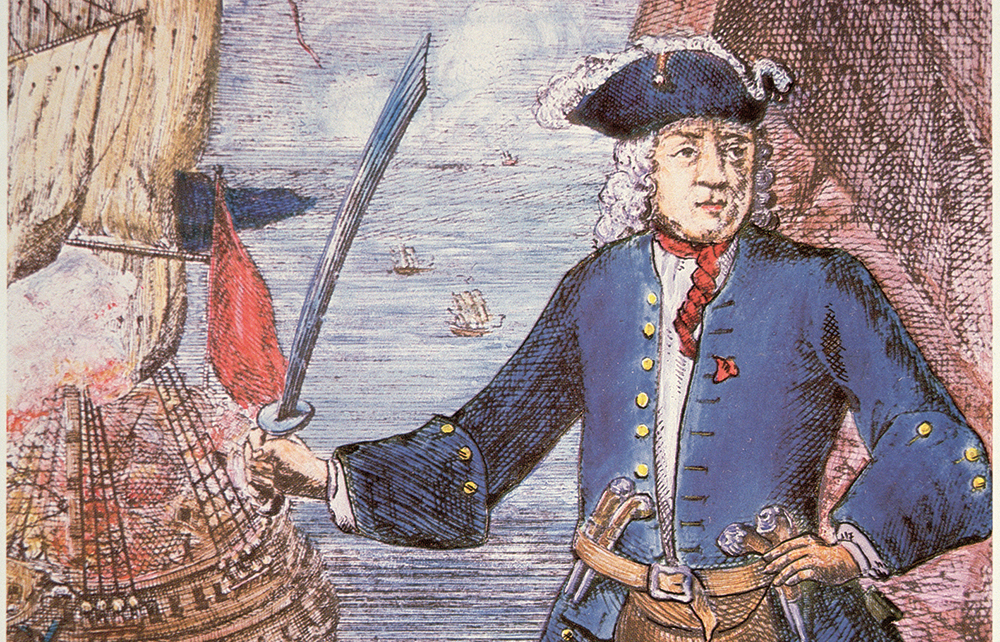On 7 September 1695, the 25-ship Grand Mughal fleet was returning through the Red Sea after its annual pilgrimage to Mecca when it was attacked by five pirate ships. In the ensuing battle, the pirates’ leader, an Englishman variously known as Henry Avery, Henry Every, the King of Pirates and Long Ben, seized precious jewels and metals worth £600,000 – equivalent to around £97.1 million today.
The British government, hoping to appease the furious emperor, declared Avery ‘an enemy of all mankind’
The furious Mughal emperor Aurengzeb accused Britain of complicity in the raid and threatened to expel East India Company representatives from India. The British government, seeking to appease the emperor, launched the first international manhunt, declaring Avery ‘an enemy of all mankind’. The pirate booty was never recovered, nor, while six of his fellow pirates were hanged, was Avery ever brought to justice. One story has it he was buried a pauper in Barnstaple.
The late American anthropologist David Graeber preferred another story. According to this saltier yarn, Captain Avery sailed off victorious on his fifth-class frigate Fancy, with not just a haul of unimaginable bling, but with the Mughal’s daughter, her head turned (whose wouldn’t be?) by this sexy outlaw. More captivating still, the story has it that Avery and his princess bride, along with 10,000 of his henchmen, then established a pirate kingdom in Madagascar. This realm, called Libertalia, was, according to Graeber, a utopian polity wherein all goods were held in common.
From his Malagasy throne, Avery despatched envoys to the courts of Europe, duping the Swedish crown into signing treaties with this purported great new power of the Indian Ocean and even inducing Peter the Great to contemplate an alliance, and create a Russian colony on Madagascar. The Tsar should have known better after his predecessor, Catherine the Great, had been duped by Potemkin villages.







Comments
Join the debate for just £1 a month
Be part of the conversation with other Spectator readers by getting your first three months for £3.
UNLOCK ACCESS Just £1 a monthAlready a subscriber? Log in